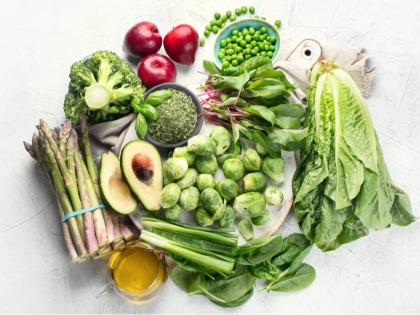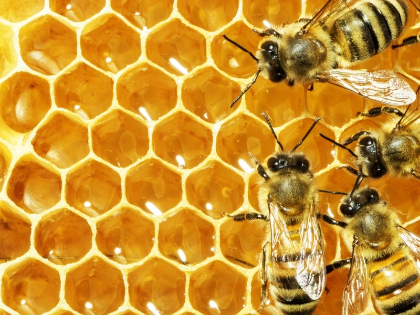Vitamin C: A Natural Approach to Lowering Cortisol Levels
1. Understanding Cortisol and Its Impact

2. The Role of Vitamin C in the Body
 Considered ascorbic acid, vitamin C is an essential component supporting many physiological processes. It's a strong antioxidant that guards against free radical damage to cells. Furthermore vital for the synthesis of collagen, which is vital for skin health, wound healing, and preserving the integrity of blood vessels, vitamin C is Beyond its antioxidant qualities, vitamin C is very important for the body's stress reaction and thereby helps to control cortisol levels.
Considered ascorbic acid, vitamin C is an essential component supporting many physiological processes. It's a strong antioxidant that guards against free radical damage to cells. Furthermore vital for the synthesis of collagen, which is vital for skin health, wound healing, and preserving the integrity of blood vessels, vitamin C is Beyond its antioxidant qualities, vitamin C is very important for the body's stress reaction and thereby helps to control cortisol levels.
3. How Vitamin C Affects Cortisol Levels
 Studies on vitamin C's ability to help reduce cortisol levels—especially in reaction to stress—have demonstrated Those who supplemented with vitamin C showed a notable drop in cortisol levels following a demanding task, according to a study written up in the journal "Psychosomatic Medicine". This suggests that vitamin C might assist control the body's stress reaction, therefore perhaps lowering the physiological effects of stress on the body.
Studies on vitamin C's ability to help reduce cortisol levels—especially in reaction to stress—have demonstrated Those who supplemented with vitamin C showed a notable drop in cortisol levels following a demanding task, according to a study written up in the journal "Psychosomatic Medicine". This suggests that vitamin C might assist control the body's stress reaction, therefore perhaps lowering the physiological effects of stress on the body.
4. The Connection Between Stress and Vitamin C Deficiency
 One can get more vitamin C depletion in the body under constant stress. The body uses extra vitamin C to support adrenal function and fight oxidative damage while under stress. If nutritional intake is inadequate, this higher demand may cause a deficit. Low vitamin C levels can aggravate stress-related symptoms, which fuels a vicious cycle of high cortisol and more nutritional loss. Getting enough vitamin C will help to stop this cycle and encourage better control of stress.
One can get more vitamin C depletion in the body under constant stress. The body uses extra vitamin C to support adrenal function and fight oxidative damage while under stress. If nutritional intake is inadequate, this higher demand may cause a deficit. Low vitamin C levels can aggravate stress-related symptoms, which fuels a vicious cycle of high cortisol and more nutritional loss. Getting enough vitamin C will help to stop this cycle and encourage better control of stress.
5. Dietary Sources of Vitamin C
Including foods high in vitamin C into your diet will help to assist cortisol control. Excellent sources of this important nutrient are fruits and vegetables. High vitamin C contents in citrus fruits including oranges, lemons, and grapefruits are well-known. Additional excellent sources are bell peppers, broccoli, spinach, strawberries, and kiwi. Including a range of these items in your meals can help you to naturally increase your vitamin C intake and enhance your body's stress management capacity.
6. The Benefits of Vitamin C Supplementation
For those who might find it difficult to get enough vitamin C from a diet alone, supplements can be a good choice. Vitamin C supplements come in pills, capsules, and powders among other forms. Studies indicate that, especially in times of great stress, supplements can efficiently increase vitamin C levels in the body and might help lower cortisol levels. To ascertain the correct amount and guarantee safety, though, it is advisable to see a healthcare practitioner before beginning any supplementation program.
7. Lifestyle Factors That Influence Cortisol Levels
Although vitamin C is very useful in reducing cortisol levels, lifestyle choices also greatly affect cortisol control. Reduced cortisol levels can result from consistent exercise, enough sleep, and good stress management strategies including mindfulness and meditation. Combining these good living habits with a diet high in vitamin C will provide a complete method to control stress and advance general health.
8. The Importance of a Balanced Diet
Maintaining best health and supporting hormonal balance depend on a balanced diet. Apart from vitamin C, several other minerals including magnesium, omega-3 fatty acids, and B vitamins help control cortisol levels. Including whole grains, lean proteins, good fats, lots of fruits and vegetables, and other whole foods will supply the essential nutrients to maintain adrenal health and assist with stress management.
9. Research Supporting Vitamin C's Role in Stress Management
Many research have looked at how cortisol levels and vitamin C relate. Higher vitamin C intake, for example, was linked in a study in the "American Journal of Clinical Nutrition" to reduced cortisol response to stress. This study supports the theory that keeping sufficient vitamin C levels may help to control stress and its physical consequences on the body.
10. Summary of Vitamin C as a Natural Approach to Lowering Cortisol Levels
One great friend in the natural way to reduce cortisol levels and control stress is vitamin C. Essential for general health, its antioxidant qualities, part in adrenal function, and capacity to control the stress response define it. Including foods high in vitamin C into your diet and, when needed, thinking about supplements will help your body properly manage stress. Combining these food plans with good lifestyle choices will help you even more to keep regulated cortisol levels and support best well-being.









